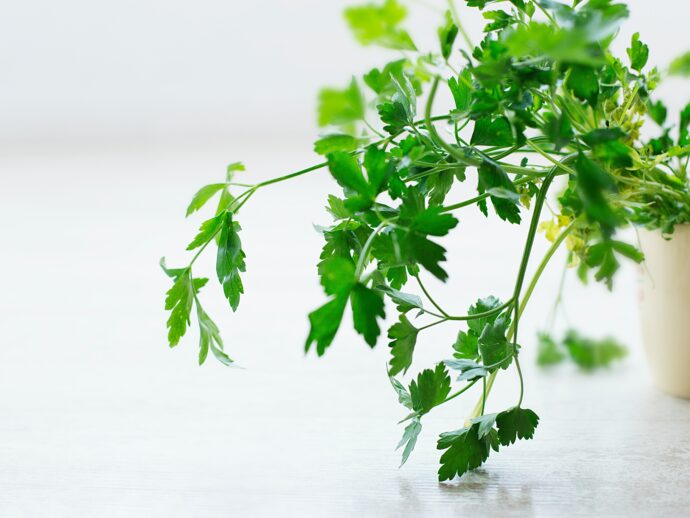
When it comes to cancer prevention, you may already know that it’s important to eat more broccoli and tomatoes, drink more green tea, and incorporate flaxseeds into your diet. These foods are powerful cancer fighters, but there are other little-known warriors against the dreaded disease that can give your diet the anticancer boost you want.
1. Chaga
Chaga mushrooms grow on birch trees in northern forests and have long been used for many health conditions in Asian and northern European traditional medicine. A study in the International Journal of Medicinal Mushrooms found that chaga mushrooms inhibited cancer tumour growth. (Learn more about chaga here).
2. Dandelion green
Dandelion greens have many anticancer compounds, including alpha-carotene, alpha-lipoic acid, beta carotene, lutein, and zeaxanthin. Research published in the International Journal of Oncology found that a tea made from dandelion leaves decreased the growth of breast cancer cells, while a tea made from the roots of the dandelion plant blocked the ability of cancer cells to invade healthy breast or prostate tissue.
How to make a delicious roasted dandelion smoothie
Roasted dandelion root smoothies are my all-time favourite smoothies.
2 cups (500 mL) almond milk
1/2 cup (125 mL) raw, unsalted cashews
1 tsp (5 mL) honey or a dash of stevia (optional; I make mine unsweetened)
2 Tbsp (30 mL) ground, roasted dandelion roots
6 ice cubes
To blender container, add almond milk, cashews, honey or stevia (if using), and dandelion root. Blend until smooth. Add ice cubes and blend again. Serve immediately.
TIP: learn how to roast dandelion roots at home!
3. Ginger
Gingerroot has significant anticancer and tumour-destroying properties. According to researchers, ginger’s anticancer potential is due to several natural compounds, including gingerol, paradol, shogaol, and zerumbone. Research in the International Journal of Preventive Medicine found that ginger may help treat breast, colorectal, gastric, liver, prostate, and skin cancers.
4. Microgreens
Microgreens are truly small but powerful. In a study published in the Journal of Agriculture and Food Chemistry, researchers found that microgreens contained up to 40 times as many nutrients as their full-grown vegetable counterparts. The miniature leaves can contain up to 40 times more anticancer nutrients such as vitamin C, carotenoids (beta carotene, lutein, and zeaxanthin), and vitamin E than their mature counterparts.
5. Miso
In a study published in Hiroshima, Japan, researchers assessed the long-term effects of miso consumption on animals with lung cancer and found that those who were fed miso that had been fermented over many months experienced a significant reduction in the number of lung tumours and adenocarcinomas—a specific form of lung and glandular cancer. They concluded that dietary supplementation with long-term fermented miso could exert cancer-preventive effects on lung cancer, while other research demonstrates miso’s protective effect against breast cancer.
6. Parsley
A study in the Journal of the Science of Food and Agriculture found that parsley acts as an antioxidant that destroys free radicals before they damage cells, protects DNA from damage that can lead to cancer or other diseases, and inhibits the proliferation and migration of cancer cells in the body.
7. Pomegranates
Pomegranates are a delicious and effective weapon against cancer. Early studies demonstrate the fruit and juice’s promise for inhibiting different types of cancer, including lung, colon, skin, breast, and prostate cancers and leukemia.
8. Sauerkraut
Not only is sauerkraut made from cabbage, one of the best anticancer foods, but research published in the journal Nature Communications found that probiotics, such as those found in naturally fermented sauerkraut with live cultures, may help prevent cancer. They may also provide help in treating cancer. During the fermentation process, nutrients in cabbage are transformed into powerful anticancer compounds known as isothiocyanates.
9. Seaweed
Fucoidans, found in seaweed, have shown antitumour activity against different types of cancer, including lung cancer, melanoma, lymphoma, and breast cancer.
10. Turmeric
While you may think of turmeric as a delicious curry ingredient or brain health booster, its main compound curcumin shows promise against prostate and colon cancer as well. In a study published in the medical journal Precision Oncology, researchers found that curcumin starved and shrunk prostate cancer tumours. Other research found that it may also reduce colon cancer risk.
Herbs and supplements for more support
When your diet is lacking in nutrients or if you just want to take extra precautionary measures against cancer, you’ll want to consider the following supplements.
Green tea
Epigallocatechin gallate (EGCG) found in green tea demonstrates effectiveness against many types of cancers.
Lutein
One of the carotenoids needed for strong immune health, lutein also has anticancer properties.
Lycopene
Plentiful research, including a study in the journal Anticancer Agents in Medicinal Chemistry, shows that lycopene helps protect against prostate cancer.
Selenium
An essential mineral, research shows that, providing you don’t exceed recommended dosages, selenium can help with cancer prevention.
Vitamin A
Research in the journal Science Reports found that vitamin A, beta carotene, and lycopene in the diet might assist in fighting pancreatic cancer.
Vitamin C
A critical nutrient for great immune health, vitamin C also helps fight free-radical damage linked to cancer.
Vitamin D
Not only is vitamin D connected to preventing many types of cancer, but a study published in the Journal of Clinical Oncology suggested that vitamin D may
help prolong lifespan in people suffering from cancer.
Vitamin E
Vitamin E is an antioxidant that helps protect your body from toxins in the environment and your food.
Michelle Schoffro Cook, PhD, DNM, RNCP, is an international best-selling and 22-time author, whose books include Be Your Own Herbalist and The Cultured Cook. drmichellecook.com; facebook.com/drschoffrocook; Twitter: @mschoffrocook
This article was originally published in the April 2020 issue of alive Canada, under the title “10 Surprising Cancer-Fighting Super Foods.”



































